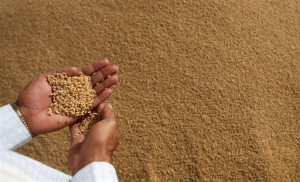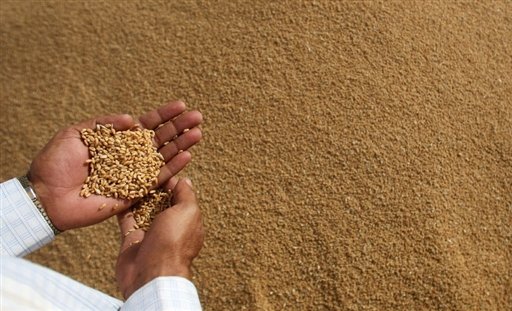
(AFP Photo)
A total of 79,285 tonnes of locally-produced wheat have so far been distributed in 2013, said Minister of Supply and Domestic Trade Bassem Ouda.
He said that the amount distributed during the whole of 2012 totalled only 6,614 tonnes.
The comments came after the minister’s meeting on Monday with Egypt’s Wheat Supply Programme Committee, to review the country’s stock of wheat and flour, in addition to systems employed for the loading and unloading of freight, in an attempt to guarantee that subsidised bread finds its way to all of the country’s citizens.
“The country’s wheat reserves are currently in the possession of Egypt’s border security, and total 730,000 tonnes,” he confirmed. “This will be enough to last until the end of this coming June.” He went on to say that Egypt’s government sought to distribute a total of 4.5 billion tonnes of wheat in an attempt to provide the country’s citizens with enough to last until the end of the year.
He added that the governorate of Sharqeya has so far imported the largest amount of locally produced wheat, totalling 21,600 tonnes, followed by Aswan with 21,538 tonnes, Fayoum with 11,846 tonnes, and Minya with 5,215 tonnes. These numbers have so far exceeded the goal set forth by the Ministry of Supply for the amount of wheat set to be distributed throughout the country this year.
“A number of measures are currently being taken to ensure that high levels of locally produced wheat being distributed remain stable,” he added. “Additional support is being set aside and provided to the country’s screening and sorting committees until the end of the distribution season in mid July, in addition to tightening market controls in all of Egypt’s provinces.” These last measures would include speeding up the process of screening and sorting wheat supplies, and paying for their cost immediately upon export.
Ouda went on to say that the Supply Ministry would take EGP 10 commission for every tonne of wheat stored in government silos per month, and EGP 6 for every tonne stored in barns.



